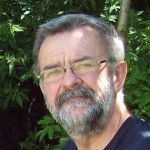What can poets and writers of fiction offer a mental health research project?
I was recruited to the project as a local writer in July 2012, and later invited to approach fellow writers and coordinate their contributions. Roughly a dozen are now studying patients’ records and transforming them into fiction. While many have jobs or publishers’ deadlines, no one has yet refused my request to contribute to the project.
Writers work slowly, and not all make promises. Sometimes they abandon lines of research that initially seemed promising. Nevertheless, all are established and respected writers engaged through either or both of our languages with the landscape and culture of Wales. Some have had very illustrious careers. All have used their writing to show a concerned awareness of mental illness or a compassionate understanding of human life. Over time their contributions will be joined by those of dramatists, artists and musicians. Already, award-winning theatre company Cwmni’r Frân Wen are working on performances in connection with the project.
A.L. Reynolds and I were the first writers to join the project, and we are the first to offer our contributions, which follow at the bottom of this page. Over time more will follow. I hope our work will bring back to life the lives and voices of long-dead patients at the North Wales Hospital.
Rob Mimpriss, Ph.D.
Bangor, October 2012
Stories and Contributors
Simon Thirsk, The Quietude.
Simon Thirsk is chairman and a founder director of Bloodaxe Books Ltd, one of the UKs foremost poetry publishers which celebrated its 30th anniversary in 2008. His novel, Not Quite White, a satirical view of how Welsh language and identity is threatened by the English incomers Wales needs in order to survive economically, was published by Gomer in 2010, and his television play, Small Zones, starring Sean Bean, was broadcast on BBC-2 in 1990. He has lived in Wales since 1997.
Gee and David Williams, The Pigman’s Year.
Gee Williams is a poet, critic, fictioneer and broadcaster. Her latest book from Salt is A Girl’s Arm. David Alan Williams is an academic and advisor on Occupational Health. This is their first collaboration.
Glenda Beagan, Imagining Angels.
Glenda Beagan is a native of Rhuddlan, where she still lives. As a mature student she gained a First Class Honours in English at the University of Wales, Aberystwyth, followed by an MA in Creative Writing at the University of Lancaster. She has published two volumes of short stories and a collection of poems; her work has also been broadcast on radio, translated and widely anthologised. She has won prizes in literary competitions, including the Cardiff International Poetry Competition and the Rhys Davies Short Story Competition. She was awarded the Trewithen Poetry Prize in 1999.

A.L. Reynolds, A Drowning, and Resurfacing Slowly.
After a misspent youth pursuing literature and mediaeval studies to postgraduate level, A. L. Reynolds now divides her time between her children, her cats and her computer. She is (as A. L. Doughty) the author of How Glass Becomes Sand (Caernarfon: Gwasg Pantycelyn, 2002). More recently she has written Of The Ninth Verse, The Myth of Wings, and Drift (Collected Poetry). She lives in the Conwy Valley.

Rob Mimpriss, Believer, 1905.
Rob Mimpriss is the author of Reasoning: Twenty Stories and For His Warriors: Thirty Stories (Caernarfon: Bwthyn, 2005 and 2010). His short story, ‘Hamilton Park,’ was a runner up in the Rhys Davies Competition along with work by Stevie Davies, Nigel Jarrett, and others, and his short story, ‘Hart’s Reach,’ appeared in Arabic translation in Albawtaka Review. He is a member of the Welsh Academy and lives in Bangor. To read more of Rob’s work see: ‘Gemini’; ‘A Lifting Up For Those Who Mourn’; ‘Mars, Bonfire, Mountain Ash’.



